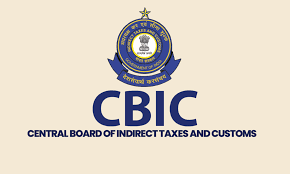The Central Board of Indirect Taxes and Customs (CBIC) has announced a key leadership change as Vivek Chaturvedi, a senior IRS (C&IT: 1990) officer, takes charge as a Member of CBIC. He succeeds Vivek Ranjan, who retired on August 31, 2025, after serving as Member (Tax Policy & Legal).
The appointment was approved by the Appointments Committee of the Cabinet (ACC), following reports last month about the likely reshuffle within CBIC. Chaturvedi, who was serving as Principal Director General of the Directorate General of Vigilance and Chief Vigilance Officer, brings with him over three decades of administrative and policy-making experience.
Leadership Transition at CBIC
The retirement of Vivek Ranjan has opened a new chapter in the leadership structure of CBIC. Sources indicate that this appointment comes at a critical juncture, as the Board is set to witness three more retirements later this year, including that of the Chairman. The reshuffle will significantly shape the future direction of India’s indirect tax administration.
Vivek Chaturvedi’s new role in CBIC is expected to add momentum to policy reforms, particularly in tax compliance, GST administration, and customs regulations. With his extensive background in vigilance and governance, industry watchers believe Chaturvedi will strengthen transparency and accountability in the system.
Strategic Importance of CBIC in India’s Tax Framework
CBIC is the apex body under the Department of Revenue, Ministry of Finance, and plays a pivotal role in shaping India’s tax policy framework. It administers laws related to Goods and Services Tax (GST), Customs, and Central Excise. The Board also focuses on curbing tax evasion, streamlining compliance processes, and facilitating international trade.
The appointment of a new Member in CBIC is not just a bureaucratic development but also a signal to industry stakeholders about the government’s intent to push forward with reforms in tax policy and administration. Experts say that Chaturvedi’s appointment comes at a time when India is seeing robust growth in GST collections and enhanced compliance from businesses.
Outlook for CBIC Under New Leadership
Chaturvedi’s immediate challenges will include ensuring smoother GST implementation, addressing issues faced by exporters under customs procedures, and supporting the government’s vision of improving ease of doing business. With global trade uncertainties and evolving tax structures, CBIC’s role becomes more crucial in balancing revenue generation with economic growth.
Policy analysts highlight that with multiple retirements on the horizon, CBIC is set for a period of transition that could redefine its governance model. The government will likely leverage this reshuffle to bring in experienced officers who can steer India’s indirect tax administration through future challenges.
Industry Reactions and Expectations
The appointment has drawn attention from tax professionals, trade bodies, and corporate stakeholders. Many believe that Chaturvedi’s vigilance background could bring a sharper focus on compliance monitoring and anti-evasion measures. At the same time, there are expectations that CBIC under his leadership will continue to work on reducing procedural bottlenecks and enhancing digital infrastructure in tax administration.
Given India’s ambitious economic targets, the efficiency of CBIC in tax collection and enforcement will directly impact government revenues and fiscal health. Business communities are optimistic that the Board, under new leadership, will maintain a balance between enforcement and facilitation.
For more updates on the latest government policies, leadership changes, and developments in the business ecosystem, check out Startup News today.



![[CITYPNG.COM]White Google Play PlayStore Logo – 1500×1500](https://startupnews.fyi/wp-content/uploads/2025/08/CITYPNG.COMWhite-Google-Play-PlayStore-Logo-1500x1500-1-630x630.png)